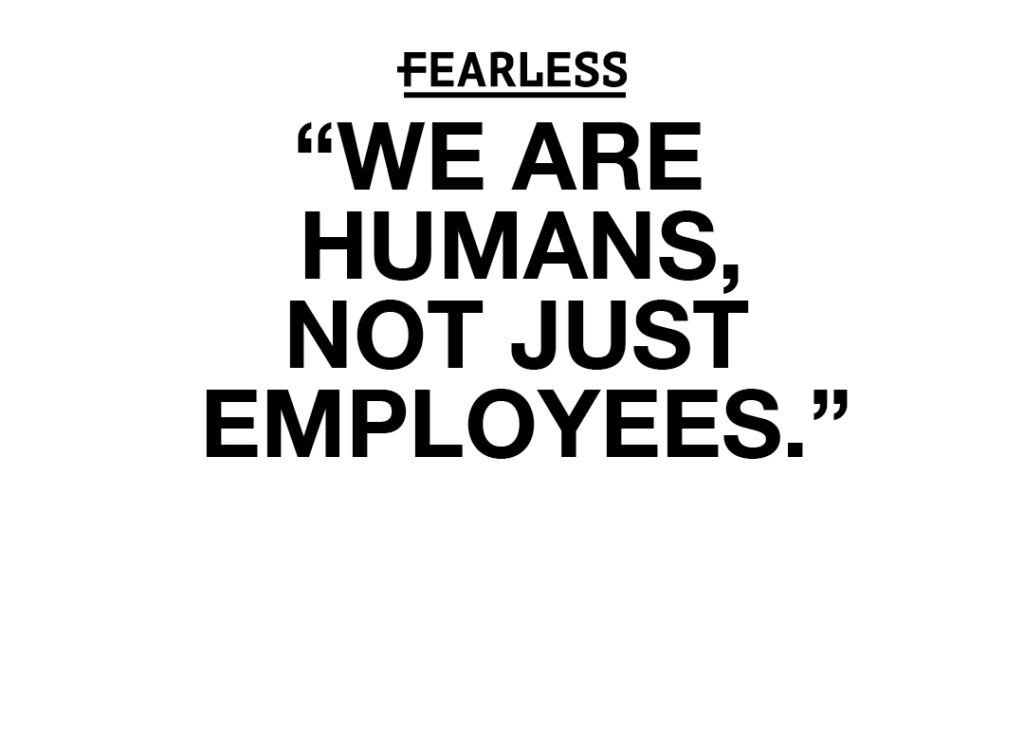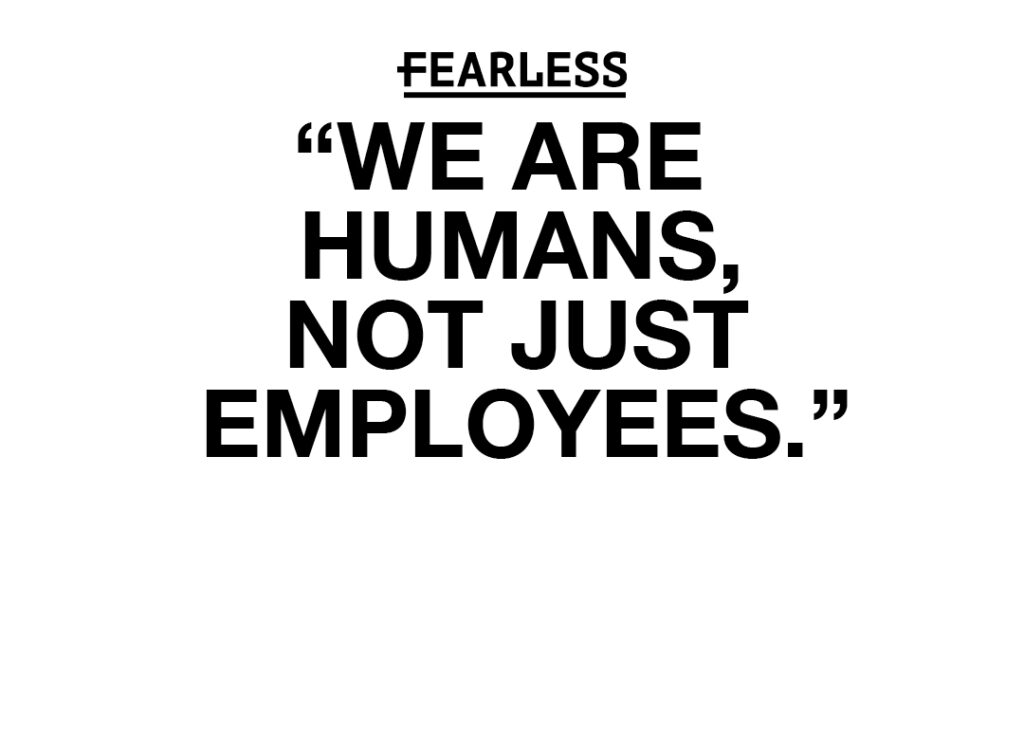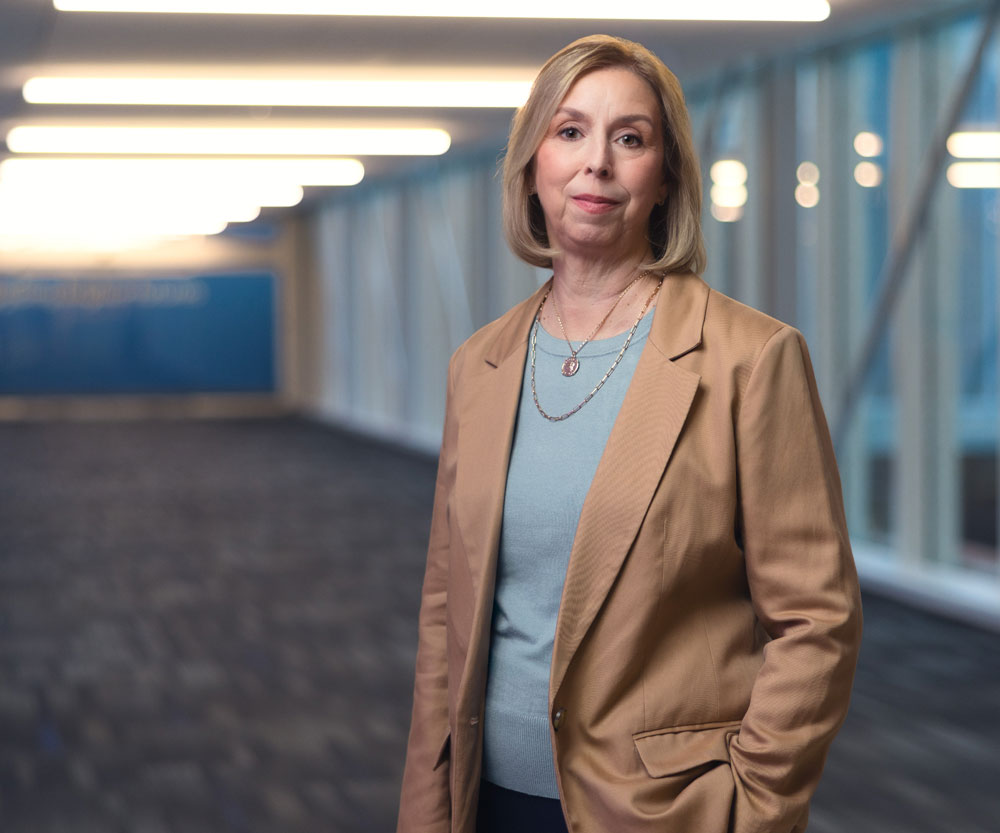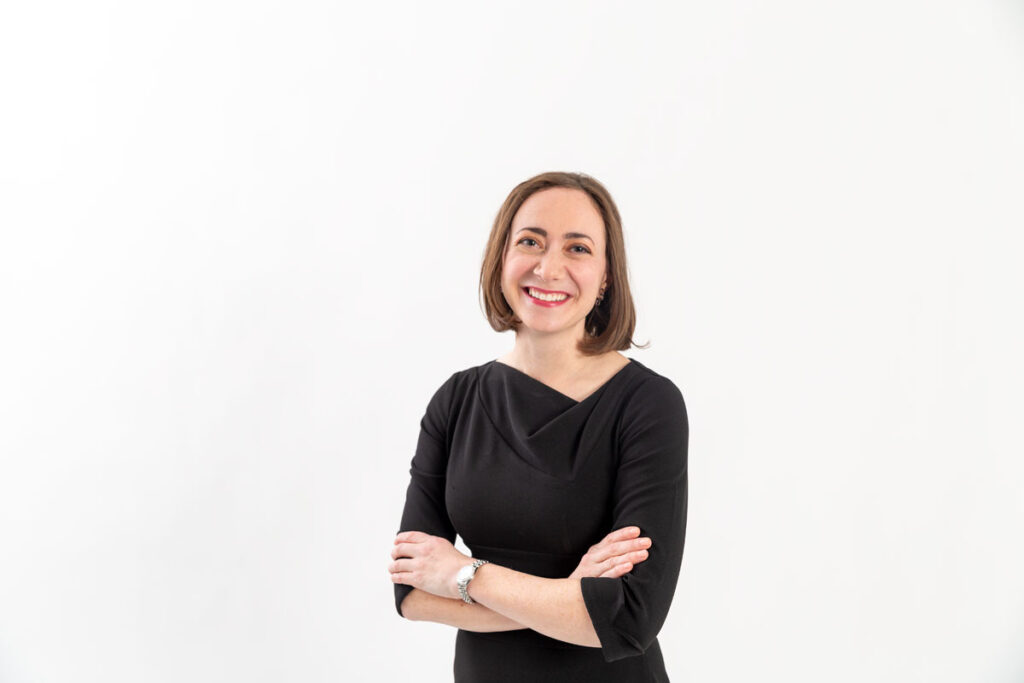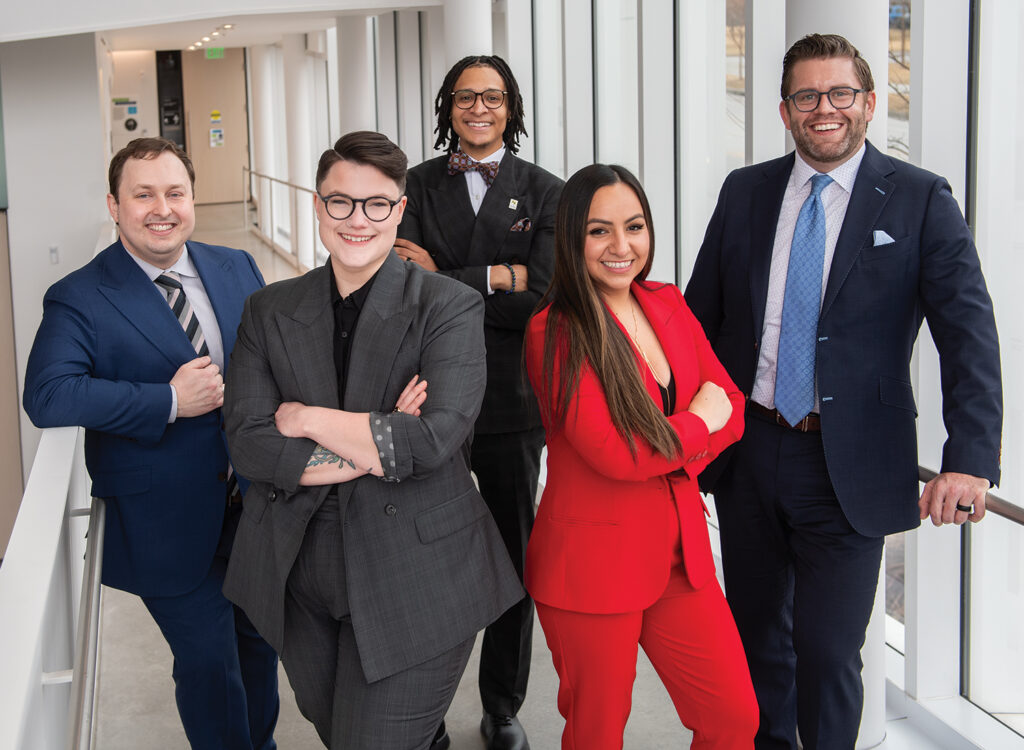From side hustle to established business
Entrepreneur Terrence Thames discusses growing Cocoa Creative Agency, equity and inclusion in the business community

SARAH BOGAARDS Nov 22, 2022 | 7:40 pm
9 min read time
2,149 wordsBusiness Record Insider, Sales and MarketingCocoa Creative Agency was a side project that owner and creative director Terrence Thames worked on for years in between freelancing and doing video production for athletic departments at Iowa universities.
He picked up the instinct for video around the age of 12 through volunteering at his church in Iowa City. In high school, he started working professionally for the city of Iowa City and nonprofits around Johnson County.
He slowly built the agency starting when he moved to Des Moines in 2010 and took the entrepreneurial venture full time five years ago.
Today, it has scaled to a full-service creative agency, the largest one in Iowa that is Black-owned, serving clients locally and across the country.
Thames said some strategies to growing his business amid a lack of representation in the industry have been to “move in different circles” to gain exposure among a range of people and commit some of the company’s financial resources to establishing a presence in spaces where he wants Cocoa Creative to be known.
The Business Record caught up with Thames.
This Q&A has been lightly edited for clarity and length.
What drew you to the creative services field?
I think early on I liked video production because I think I took to it pretty easily, and also, it served a purpose. I was able to do video editing because someone in my church needed that and showed me how to do it. It switched later on where I really was interested in doing more things than just video and building a small website turned into having a graphic design program. The proximity to serve tapped into the skill sets that I have, so thus the business grew. At first it was just me and what I could do. Later on it was what the team could do, and I could step back and think differently about how can I use my mind and how can I see us adding a solution that is different from just my skill set. I wanted to get into storytelling because representation matters a lot to me. I could start to see where there was lack of representation. I would watch TV and be like, “Oh man, why aren’t there more commercials with Black people in them?” I thought I could do that. I could edit that. I could film that. So I started to associate what the business could do with where I saw we could add value. Now we’re at a place where although we are full service, our sweet spot is not only storytelling but offering digital solutions for clients who certainly want to be connected with culture, but also want to have their branding and marketing implemented in a way that makes sense across multiple digital platforms.
Has furthering representation in marketing become part of Cocoa Creative’s work?
I think that’s a part of our future. That’s not really the biggest part of what we’re offering to clients. Government contracting that we do, that’s a bit more straightforward in the services that they want, but sometimes our experience does inform what kind of value we can offer. With government contracting, it’s a little bit different because they have specific projects and goals and expectations, but on the corporate side we have had the privilege of really being a part of certain cultural experiences and I think our value proposition is we are able to do that authentically. But we’re not really working with a lot of corporations at this time who specifically see us as being able to help them implement that strategy on behalf of them, but I’m hoping that’s a place where we can continue to grow. … I think that as corporations come along and they continue talking with Black and brown people, being front-facing in their marketing strategy with those audiences, as they identify the opportunity there, they will see us as a go-to resource for making sure that the strategy they use to implement that is done in the right way.
What have you learned as Cocoa Creative has become more involved in the business community?
I would say that as I have started moving in different places and contributing in stronger ways to the community, what I have seen is that I think people see your integrity through your actions, but you have to be about your business. Sometimes in this community, from a professional standpoint, you can get to certain places just by being articulate, carrying yourself well, having your looks together, you will get so far in this community, and in many communities. You’ll get to a certain level professionally, you can make a living for your family. And that’s cool, but when you talk about being a thought leader in certain spaces, that requires a certain level of research and understanding and self awareness in these spaces. When you come into a room, you want to be able to fill it up with your light, and I think that that kind of insight is a great thing to have about yourself. Being any kind of person where you understand your power and influence is in how you carry yourself, and how you see the world, and how you add value to people, that is the mark of someone that you want to be around no matter what room you’re in.
So when you start to be out in the community more, that integrity is great to have and it’s infectious. But on top of that, you have to be about your business when it comes to understanding what kind of value you can offer to someone else, especially about being an entrepreneur, what kind of influence you bring with whatever board you sit on. I think just an awareness of those things is very helpful for me as I have continued to be a part of different events and seek to add value to different companies and boards.
What does inclusion in the business community mean to you as a person of color?
I think one of the things that I’ve seen and learned is — and this is important to me — if I’m the only person of color in the room, that’s not a good thing. Because I understand that that’s not a good thing, I think about how am I making opportunities for others who are smart and bright and leaders in their own right to also join these rooms? How am I advocating and making space for those individuals so it reflects better the community that we live in and serve? I think that’s the real key.
There are boards in this town that are not as diverse as the communities or organizations that they serve, and there are even rules in place where they actually kind of systematically keep it that way. But those who actually understand the power of diversity of thought will try to make changes in those spaces. As I’m in these spaces, and I see it’s not as diverse, I’m going to advocate and make sure that we can diversify these spaces in order to add value, again, for our community and the organization that we serve. Another thing I’ve noticed is that humans are humans, and I think on a very deep level, people care about other human beings. People may assume because a room is not diverse, that it’s a racist room. That’s actually not true. That’s not true at all.
I think systems are filled with racism, and in a place like Des Moines, or in a place like Iowa, it’s just not a very diverse place so there are going to be a lot of things already set up to benefit the majority, not the minority. But it’s when we start to unpack that and be intentional around making changes so there’s not only equality but equity in these spaces, when we start to recognize and make change for that, then that’s where we can start to really be more progressive and really have better communities and better businesses that serve our diverse populations. Iowans are diverse. They’re not just one type of person, they’re all kinds of people. But the people that make up these boards and in all these spaces, they love their community just like I do, so I think sometimes people have blind spots or they haven’t been given the opportunity to make those changes because no one has spoken up about these things enough to help create the change.
What does it mean to be intentional in making change happen? What does it take?
One, that’s a multifaceted answer, but I think one of the major components that can help lead toward our community solving some of these things is an economic solution. Iowa itself is at least 15 to 20 years behind major cities, when it comes to economic mobility of Black and brown people, when it comes to the supplier diversity systems we have in our government infrastructure, when it comes to economic capitalization from banks and financial institutions, when it comes to supplier diversity efforts from our major corporations in our state.
It really is beyond laughable. It almost brings you to tears when you actually understand the numbers of how poorly our state from a legislature standpoint and a government contracting standpoint, and our private corporations, has done with capitalization, economic opportunities for Black and brown people, when it comes to building generational wealth and providing viable capitalization for minority-owned businesses, let alone the economic status of women and Black and brown people professionally. Those statistics when you look at them are just quite shameful. People think that when they make small progress, that’s a good thing.
I’m looking at them and some other people are looking at them like you don’t understand how bad of a condition we’re in. It is nothing to celebrate even though there is progress, which is so far behind. … We’re very behind and the corporations are slow to change. Most of them have been dominated by straight white males. The infrastructure they have, the systems are created in these same spaces with the same kind of systems in place. It’s hard, even if you have some leadership that wants to change certain things. It’s hard to get their whole leadership team on board with diversity, equity and inclusion or even them taking viable steps to actually make a change. Our city barely even has a supplier system, let alone a supplier diversity system. … Companies that made a commitment to what the Greater Des Moines Partnership is trying to do, which is to help them connect and create systems to not only grow their systems internally but to grow their outreach externally with minority business communities. But we’re in 2022. This should have been done way long ago.
For me, we’re not waiting. We’re trying to be the change that we want to see and I think that’s all you can do is just try to walk in your purpose. If you think part of your purpose as an individual in an organization is to help the company grow its supply chain, help them figure out their blind spots when it comes to how they can be better in serving diverse communities. If you think part of your purpose working for a financial institution is to help, give more home loans for minorities, Black and brown folks and immigrants. Walk in your purpose, because it’s through people that changes can happen with organizations.
What role do you see for Cocoa Creative in the business community moving forward?
For me, I’m just going to continue being anywhere I can to help any entrepreneur, especially those who I identify with. I love people, and I want to help add value to anyone who’s seeking to grow as an entrepreneur and as a person. When it comes to where I see Cocoa adding value, at least in the Des Moines community, I see us being an example of what a great company can do that represents this city well, because we have and will continue to have great clients all around the country. When they say, “We work with Cocoa Creative” I want people to be like, “That’s our hometown team. That’s our hometown company.” With us being the largest Black-owned agency, certainly in the state, I want us to continue to be a great partner for corporations to look to for a great solution for branding, for strategy and to help them implement their creative needs when it comes to the things that we specialize in. It may not be on the actual execution of those things. It may be in the strategy for how they can get to where they want to be, but we’re able to be a great partner that helps complement that.




